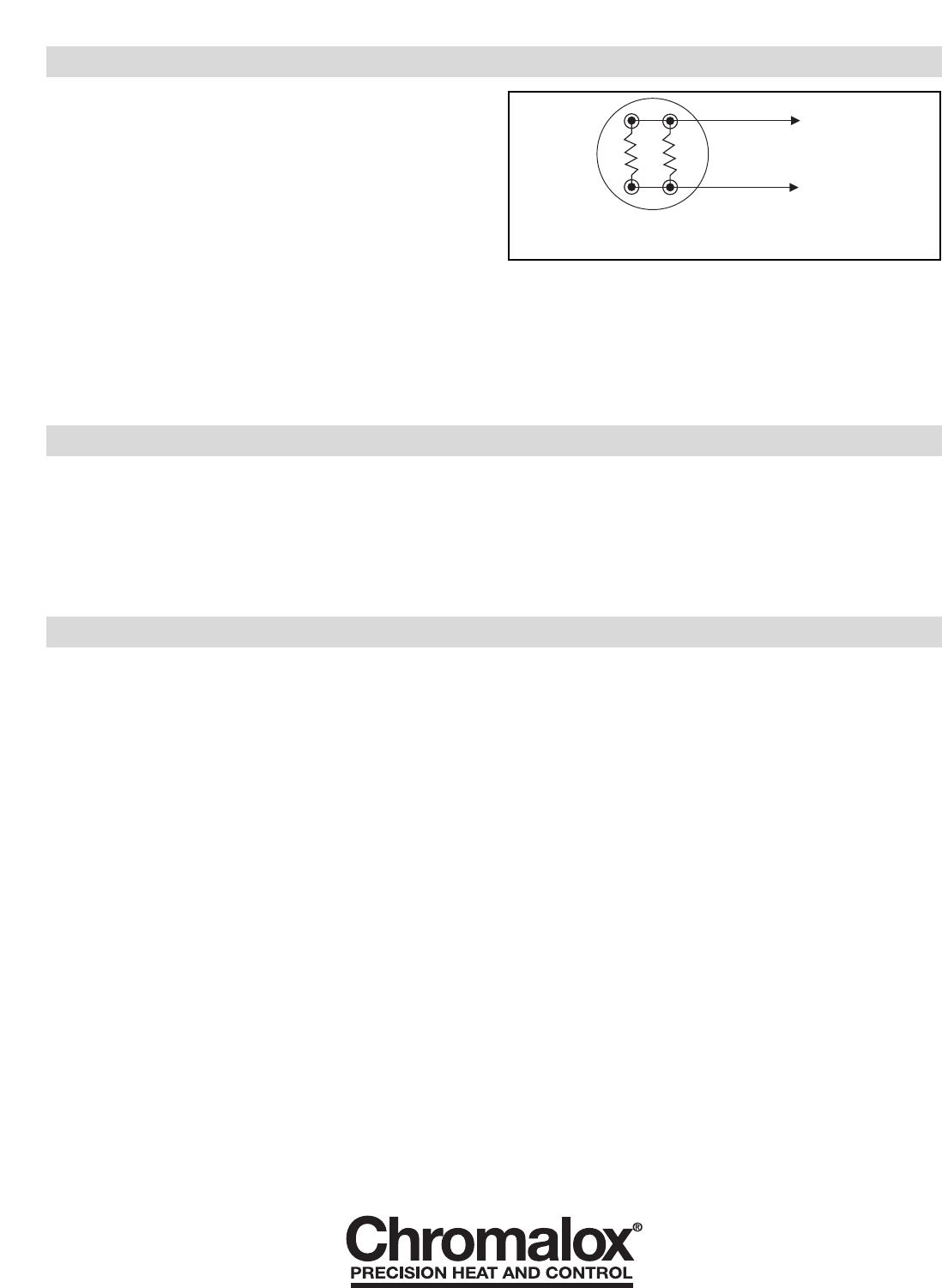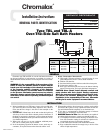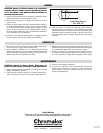
WIRING
CAUTION: Hazard of Electric Shock. Any installation
involving electric heaters must be effectively ground-
ed in accordance with National Electrical Codes to
eliminate shock hazard.
1. Electrical wiring to heater must be installed in accordance with the
National Electrical Code and local electric codes.
2. When element wattages are not equal, heaters must not be con-
nected in series.
3. Electrical wiring to heater should be contained in Rigid Conduit or
in sealed Flexible Metal hose to keep corrosive vapors and liquid
out of the terminal housing. Conduit should terminate at some
remote area free of corrosive vapors. If high humidity is encoun-
tered, the conduit should slope away from the heater terminals to
keep condensate away from the heater.
4. If flexible cord is employed with the heater, a watertight connector
should be used for entry of the cord into the terminal box.
5. Make sure heater is grounded by attaching ground conductor,
traceable back to service entrance, to the ground terminal located
inside the terminal box. If heater is used in an electroplating tank,
the heater should be grounded externally to the tank wall to mini-
mize stray plating currents in heater sheath that may cause sheath
corrosion.
OPERATION
1. Do not operate heater at voltages in excess of that stamped on the
heater since excess voltage will shorten heater life.
2. Always maintain a minimum of 2” of solution above the heated
portion of the element to prevent exposure of the effective heated
length. If the heater is not properly submerged, it may overheat and
shorten heater life. Do not operate heater if dry.
3. Sludge should not be allowed to build-up to the point where it con-
tacts heater as this can lead to premature heater failure. Sludge legs
are recommended. Heater must not be operated in sludge.
4. If heater is inactive for a prolonged period or subjected to exces-
sive moisture during shipments, energize at half voltage for a peri-
od of time (generally overnight) before operating at rated voltage.
MAINTENANCE
CAUTION: Hazard of Severe Shock. Disconnect all
power to heater before servicing or replacing heaters.
1. Heaters should be checked periodically for coating and corrosion
buildup and cleaned if necessary.
2. Tank should be checked regularly for sediment around the ele-
ments as sediment can act as an insulator and shorten heater life.
3. Check for loose terminal connections.
4. If corrosion is indicated in the terminal housing, check termi-
nal box gasket and replace if necessary as well as checking the
conduit layout to correct the conditions that allow corrosion to
enter the terminal housing.
TA - Q0 - EF
Litho in U.S.A.
2150 N. RULON WHITE BLVD., OGDEN, UT 84404
Phone: 1-800-368-2493 www.chromalox.com
L1
L2
Typical Wiring Diagram
240 - 480V, 1Ø
Limited Warranty:
Please refer to the Chromalox limited warranty applicable to this product at
http://www.chromalox.com/customer-service/policies/termsofsale.aspx.




